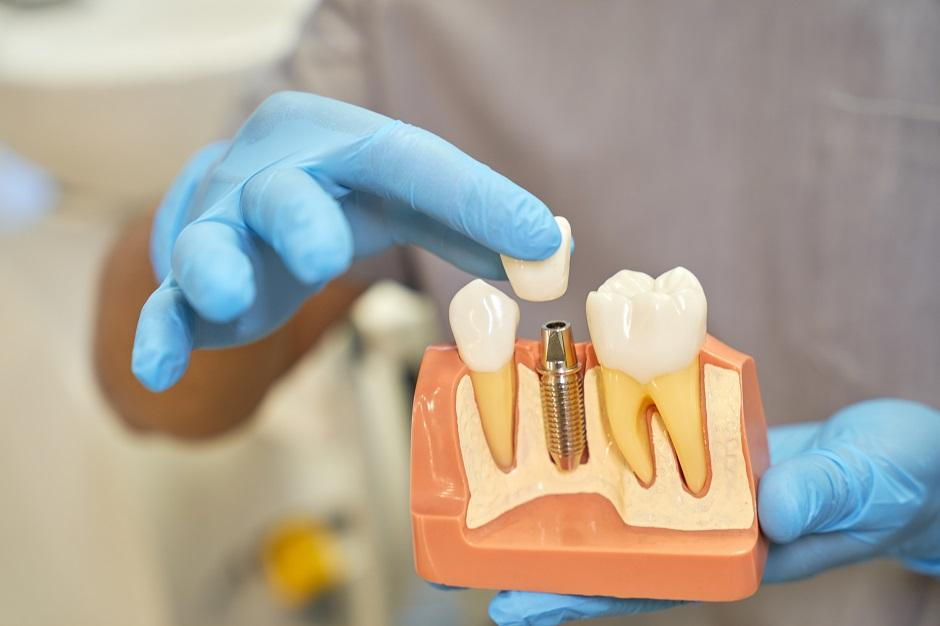
Dental implants are made of highly sturdy and durable materials i.e. porcelain and titanium. Neither porcelain nor titanium is affected by cavities. However, it is very important to keep your gums healthy before and after you receive dental implants as they can collect bacteria and plaque just like regular teeth. Thus, it is critical to brush regularly and floss around the abutments along with your natural teeth.
Dental implants fail in only those cases where patients have gum disease. So, if you want your dental implants to last longer, healthy gums are the key.
Why Dental Implants Fail When a Patient Has Gum Disease?
Dental implants are not susceptible to decay because the bacteria that lead to tooth decay cannot affect porcelain and titanium. However, special considerations need to be taken when a patient has gum disease. Gum disease is a common cause not only of tooth loss when you have all-natural teeth but also of implant failure when you get dental implants in your mouth.
When you develop gum disease, the gums recede or pull back from the tooth roots and cannot hold them, leaving the tooth/implant with insufficient support. As a result, the natural tooth can become loose and fall out and an implant can fail.
When the gums are severely infected, they are not strong enough to support the implants and the implants eventually get loose.
Once this happens, the only solution is to remove that implant and start the whole process again.
How Long Do Dental Implants Last? Can They Last Forever?
If you have healthy gums, your dental implants can last for decades. This means if you are getting dental implants at a later stage of your life, you may not have to replace your implants at all. However, if you have received dental implants at an early age, then there might come a time when your doctor will recommend replacing them with new ones. Depending on how well the implants are properly fitted and cared for, your dental implants can last anywhere around 25 years.
For patients with gum disease, many dentists ask to see them more often, especially in the first one or two years after the implant procedure because of the complications that can arise due to gum disease. It becomes necessary to ensure that your gums don’t further degrade and that the implants remain secure for a longer time.
If you see any signs of gum disease, see your dentist and get the treatment immediately to prevent implant failure.
Signs of Gum Disease
- Swollen or puffy gums
- Gums with bright red, dusky red, or purplish hue
- Tender and painful gums
- Bleeding gums
- Pink-tinged toothbrush after brushing
- Spitting blood when brushing or flossing
- Bad breath
- Pus between your teeth and gums
Your oral hygiene practices, food and chewing habits, the skill of the dentist, location of the implant, whether you smoke and/or drink or not, your medical conditions, and your bone density - all of them can affect how long your dental implants will last.
Thus, if you have lost one or more teeth due to injury or accident or see any signs of gum disease, book your appointment today with an experienced dentist near you.
At College Street Dental, we have been providing dental care for patients of all ages for more than twenty years. So, if you are looking for a reliable and experienced dentist in Covina, West Covina, Glendora, San Dimas, Azusa, La Puente, Baldwin Park, Pomona, Duarte, Arcadia, Irwindale, or Diamond Bar, schedule your dental appointment with us today.
